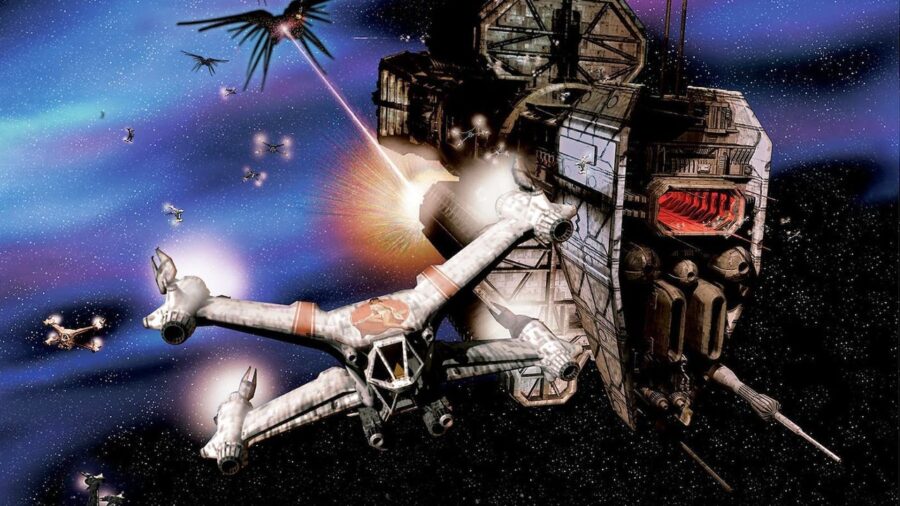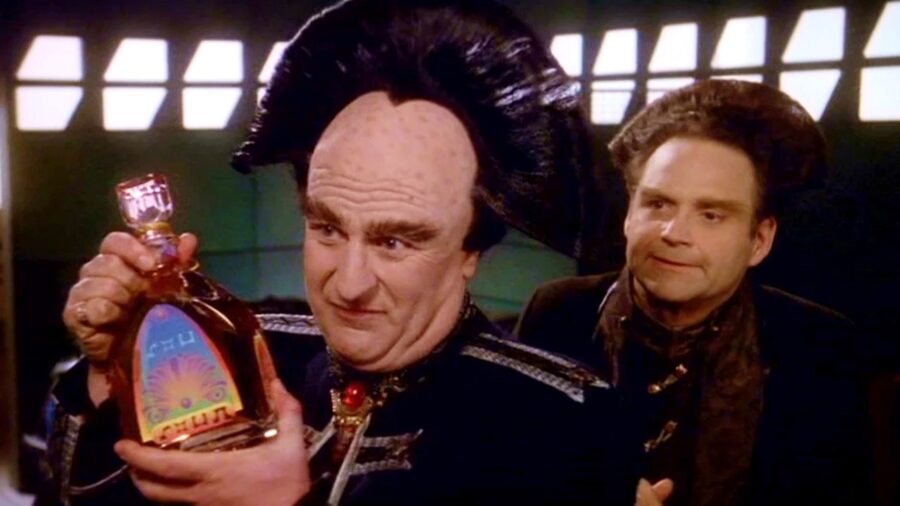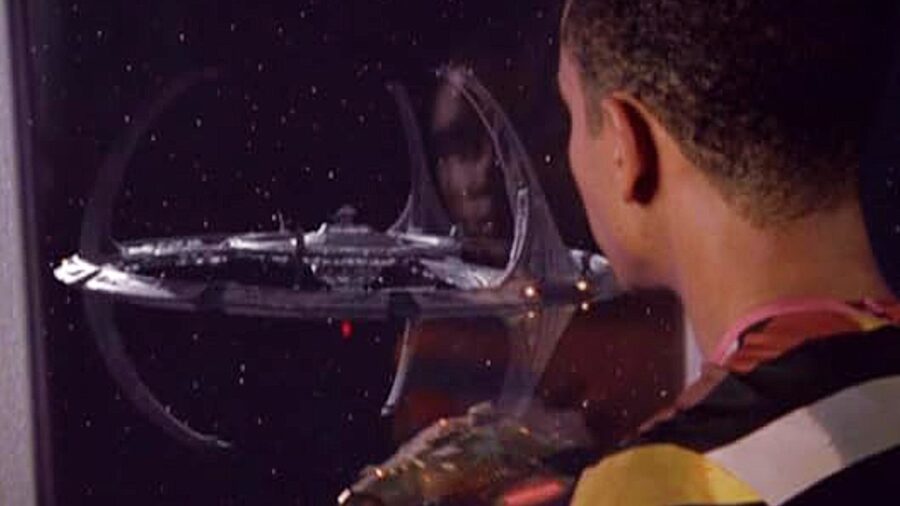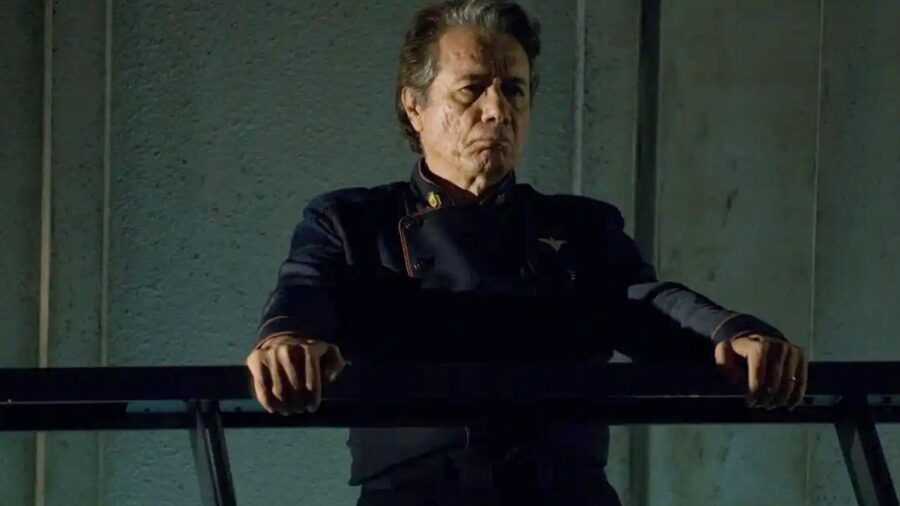90s Sci-Fi Series That Re-Invented The Genre Deserves Your Attention Today

If there is a sci-fi series more under appreciated not only for its quality, but for how it helped re-shape storytelling on the screen, than the ’90s space opera epic Babylon 5, then I’ve never heard of it. The creation of J. Michael Straczynski, the show was a pioneer in serialized epics on TV, and it also proved that sci-fi audiences were capable of consuming premises and plots more complex than “good guys, bad guys, laser guns, pew pew.” Its influence can still be felt today, in a media landscape where complex, serialized stories have become the norm rather than the exception.
Babylon 5

Established in the test pilot TV movie Babylon 5: The Gathering, the series takes place on the eponymous space station built in the aftermath of numerous interstellar wars. Initially run by Earth Commander Jeffrey Sinclair (Michael O’Hare)–later replaced by Captain John Sheridan (Bruce Boxleitner)–the goal of Babylon 5 is to give diplomats of every intelligent race a space to work out their problems in the hopes of preventing more bloodshed.
Sinclair, Sheridan, and their loyal staff prove to be more than just babysitters for the alien diplomats on Babylon 5. Along with making sure the different races of the galaxy don’t reignite old conflicts, the heroes deal with murder mysteries, espionage from psychic agents, and a growing conflict with Earth itself. Simmering behind it all is the threat of the mysterious Shadows, whose true nature we wait a long time to learn.
Star Trek: Deep Space Nine

The most direct and obvious influence Babylon 5 had on sci-fi TV is the creation of Star Trek: Deep Space Nine. According to some accounts, Paramount straight-up stole the concept of Babylon 5 for DS9. But even if we generously give the studio the benefit of the doubt, the similarities between the two series are undeniable.
Both series leaned into serialization, both took place chiefly on a space station at the center of a complex and volatile political situation. The main heroes of both shows become the subjects of ancient alien prophecy, and both feature a slow-burning plot about a mysterious and apparently unbeatable enemy, with things exploding into a grand, full scale interstellar war.
More than anything you can see the influence of Babylon 5 on DS9 in the premise and how the Trek creators put more faith in their audience. For example, the premises of the first three Star Trek series (including The Animated Series) were relatively simple — explorers travel through the galaxy and encounter dangers.
The premise of DS9? Man assumes command of a space station in the hopes of helping a freshly liberated people recover and join the Federation, while at the same time becoming an important figure in that civilization’s religion and discovering a portal to a different part of the galaxy where new dangers await.
Battlestar Galactica

Obviously the mid-00s Battlestar Galactica reboot was no doubt inspired more by its predecessors than anything else, but if you’ve watched BSG and you give Babylon 5 a chance, you’re going to be reminded of the former show all the time.
No, the guys on Babylon 5 aren’t jumping from place to place on the run from intelligent robots, but when it is time for the station to deploy fighters and throw down with bad guys, the interaction between the commanders on the station and the pilots in ships are very reminiscent of Battlestar Galactica. The older series made sure its military had a more genuine, modern-day feel–something BSG smartly copied.
By The End Of The Nineties, The Tide Turned

If you were watching TV in the ’80s and ’90s like I was, then you likely remember how rare it was for an episode of any TV show–beyond soap operas–to even go so far as to reference something that happened in a previous episode. Babylon 5 is one of the series that changed all that.
By the end of the ’90s, more and more shows were following Babylon 5‘s example, and not just in sci-fi. Buffy the Vampire Slayer, its spinoff Angel, the urban fantasy Charmed and more were all treating their storytelling in a more serialized fashion
Lost And Beyond

In 2004, the game-changer Lost was released and while plenty of fans felt it eventually dropped off in quality, its initial success changed TV dramatically. Again, following Babylon 5‘s example, Lost gave viewers a serialized sci-fi story that planted deep seeds that didn’t sprout until much later.
For better or worse, we now have a media landscape in which the serial is the norm. Even some sitcoms, like How I Met Your Mother, have fallen in step with the style. We all tend to disagree on whether or not that’s a good thing, but one thing we can agree on is that one of its starting points was Babylon 5.












